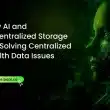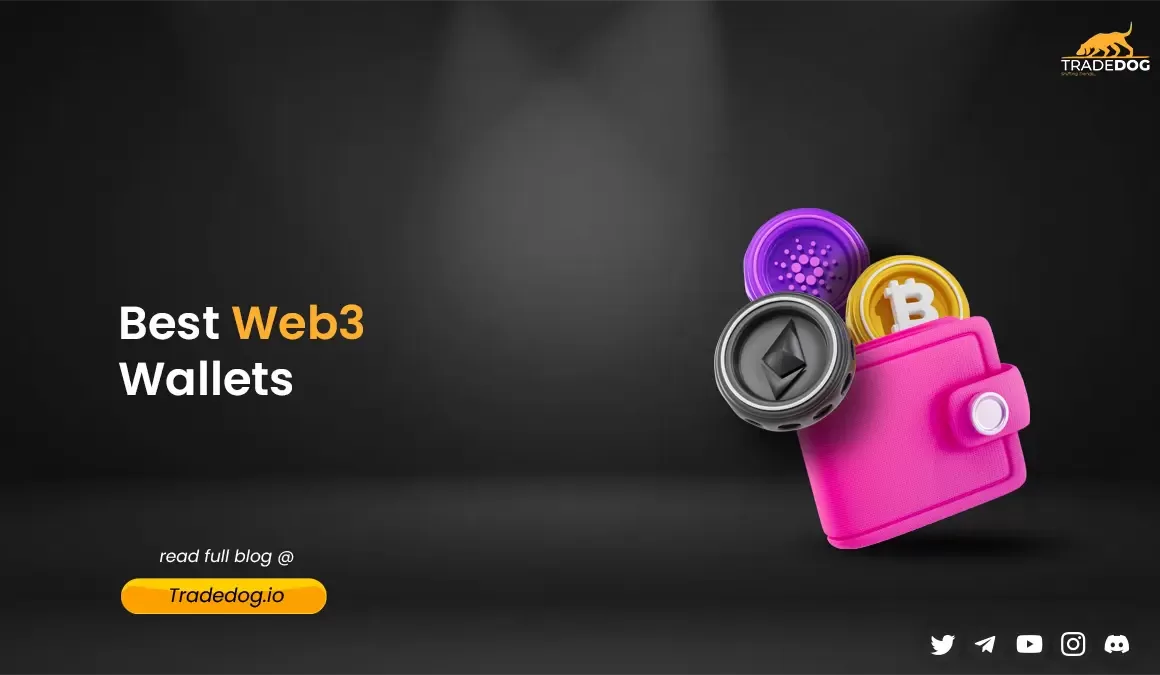Quick Links
Web3 is the next version of the internet, based on blockchain technology, that provides a decentralized and peer-to-peer network. It allows users more control over their data and digital assets, while also delivering increased security, privacy, and transparency when compared to traditional centralized systems.
In the world of blockchain, Web3 wallets play a crucial role in interacting with decentralized applications (DApps). DApps are applications that run on blockchain networks, allowing users to engage in various activities like financial transactions, gaming, and social networking. Web3 wallets act as a bridge between users and DApps, enabling seamless and secure interactions.
Understanding Web3 Wallets
There are several key differences between Web3 wallets and traditional cryptocurrency wallets. First and foremost, traditional wallets are typically custodial, meaning that the user’s private keys and funds are controlled by a centralized entity, such as a cryptocurrency exchange. In contrast, Web3 wallets are non-custodial, giving users full control over their private keys and funds.
Additionally, Web3 wallets utilize blockchain technology to interact with decentralized applications (dApps). They enable users to authenticate themselves, sign transactions, and interact with smart contracts directly from within the wallet. This eliminates the need for users to rely on intermediaries or third-party services to access and manage their digital assets.
Security and Privacy Features
- Security is crucial when it comes to Web3 wallets, as they store valuable digital assets and facilitate transactions on the blockchain. To ensure the safety of funds and personal information, it is essential to implement robust security measures.
- Overview of Encryption, Private Key Management, and Secure Access Methods
- Encryption plays a vital role in securing Web3 wallets. By encrypting sensitive information stored in the wallet, such as private keys and transaction details, unauthorized access is prevented. Effective private key management is also crucial for wallet security. Best practices include regularly updating wallet software, using strong and unique passwords, and activating Two-Factor Authentication (2FA). These measures help protect against emerging threats and make it harder for attackers to guess or crack passwords.
- Secure access methods are employed to ensure that only authorized users can access the Web3 wallet. Technologies like secure enclaves or trusted execution environments provide a secure environment for sensitive operations like signing transactions or decrypting private keys, minimizing the exposure to potential threats.
- Multi-Factor Authentication and Other Security Layers
- Web3 wallets often offer multi-factor authentication (MFA) as an extra layer of security. MFA requires users to provide multiple forms of verification, such as a password, hardware token, or biometric data. This additional step ensures that even if one factor is compromised, there is still another layer of security in place. Other security layers can include two-factor authentication (2FA), which requires users to verify their identity through a second form of authentication, such as a one-time code sent to their registered phone number.
- Privacy-Focused Features for Anonymous Transactions
- Web3 wallets may also provide privacy-focused features for anonymous transactions. These features allow users to maintain their privacy by obfuscating transaction details and protecting their identity. Techniques such as zero-knowledge proofs or ring signatures can be leveraged to provide a higher level of anonymity and privacy for users engaging in blockchain transactions.
Types of Web3 Wallets
There are three main types of web3 wallets: non-custodial wallets, custodial wallets, and smart contract wallets.
- Non-Custodial Wallets: Non-custodial wallets, also known as self-custody wallets, offer users complete control over their private keys and funds. These wallets do not rely on third-party services for wallet management. Popular non-custodial wallets include Metamask and Trust Wallet. They provide users with a secure and convenient way to access decentralized applications.
- Custodial Wallets: Custodial wallets, in contrast, are managed by third-party services. These services take responsibility for safeguarding the user’s private keys and managing the wallet’s security. Users trust these services to ensure the safety of their funds. It’s important to choose reputable custodial wallet providers to ensure the security of your digital assets.
- Smart Contract Wallets: Smart contract wallets, also known as contract-based wallets, are built on blockchain smart contracts. They enable advanced functionality and automation of transactions. While not as widely used as non-custodial and custodial wallets, smart contract wallets offer unique capabilities for users who require more advanced features.
Now, let’s discuss the advantages and disadvantages of each type of web3 wallet:
1. Non-Custodial Wallets:
Advantages:
- Users have full ownership and control over their private keys and funds.
- No reliance on third-party services for wallet management.
- Popular non-custodial wallets like Metamask and Trust Wallet offer easy access to decentralized applications.
Disadvantages:
- Users must take sole responsibility for safeguarding their private keys.
- Limited customer support and assistance in case of issues.
2. Custodial Wallets:
Advantages:
- Wallet management and security are handled by trusted third-party services.
- Generally, easier to set up and use for beginners.
- Some custodial wallets may offer enhanced customer support.
Disadvantages:
- Users must trust the custodial wallet provider to secure their funds and private keys.
- Potential security risks if the custodial service is compromised.
3. Smart Contract Wallets:
Advantages:
- Enable advanced functionality and automation of transactions.
- Provide flexibility for specific use cases that require smart contract capabilities.
Disadvantages:
- Limited availability and adoption compared to non-custodial and custodial wallets.
- May require technical expertise to set up and use effectively.
In addition to the different types of web3 wallets, it’s important to consider the various wallet options within each category. Some common types include:
- Browser Extension Wallets: These wallets integrate directly into web browsers and offer easy accessibility and compatibility with decentralized applications. However, they may be more susceptible to browser-based attacks.
- Mobile Wallets: Mobile wallets provide convenience and portability for accessing decentralized applications on the go. They often offer enhanced security features like biometric authentication but rely on the security of the user’s device.
- Hardware Wallets: Considered the most secure option, hardware wallets store private keys offline and protect against online threats. They offer compatibility with various dApps and devices but can be more expensive and require physical connectivity.
- Web Wallets: Web wallets allow easy access from any device with an internet connection. They offer user-friendly interfaces and support multiple cryptocurrencies but pose security risks as private keys are stored online.
Best Web3 Wallets You Must Try
When it comes to managing your digital assets and interacting with Web3 applications, having a reliable web3 wallet is essential. Here are some of the best web3 wallets that you should consider trying:
1. MetaMask
MetaMask is an incredibly popular web3 wallet that allows users to manage Ethereum-based assets and interact with decentralized applications (dApps) on the Ethereum network. With its user-friendly interface and a wide range of features, MetaMask provides a seamless experience for both beginners and experienced users..
2. Phantom
If you’re specifically interested in the Solana blockchain, Phantom is the web3 wallet for you. Designed for the Solana blockchain, Phantom offers a user-friendly interface and a seamless experience for managing Solana-based assets and interacting with dApps on the Solana network.
3. Rainbow
Rainbow is a multi-chain web3 wallet that supports various blockchains, making it a versatile option for users with diverse digital assets. It boasts a simple and intuitive interface that allows users to effortlessly manage their digital assets across different networks. Rainbow also emphasizes security and implements various measures to protect user funds.
4. ZenGo
With a focus on security and simplicity, ZenGo is a non-custodial web3 wallet that offers a user-friendly design. It utilizes threshold cryptography to ensure secure key management and allows users to easily interact with dApps on different blockchains.
5. Ledger
For those prioritizing robust security features, Ledger is a hardware web3 wallet that stores private keys offline. This offline storage provides protection against hacking and malware attacks. Ledger also offers support for a wide range of cryptocurrencies, making it a popular choice among cryptocurrency enthusiasts.
These web3 wallets are highly recommended based on their features, security measures, and ease of use. However, it’s important to carefully consider your specific needs and preferences before choosing the right wallet for you. Conduct further research and explore the features and capabilities of each wallet to find the best fit.
Remember, these web3 wallets serve as conduits for accessing the benefits of Web3 solutions such as decentralized finance (DeFi), NFTs, and other digital assets. To gain insights into their performance and features, it’s recommended to read user reviews and experiences of each wallet.









